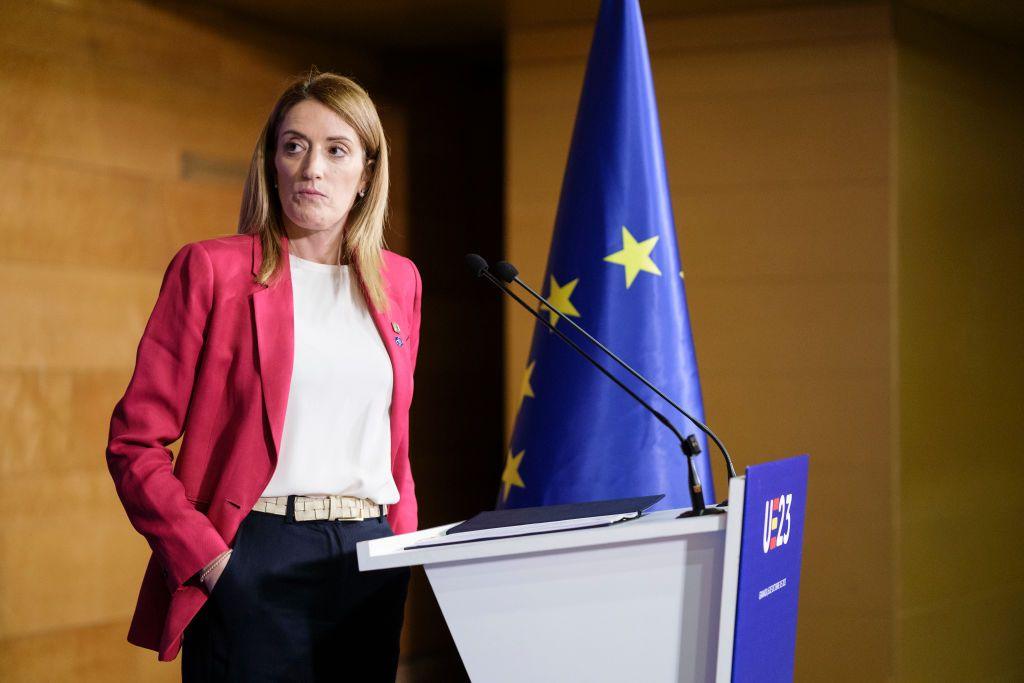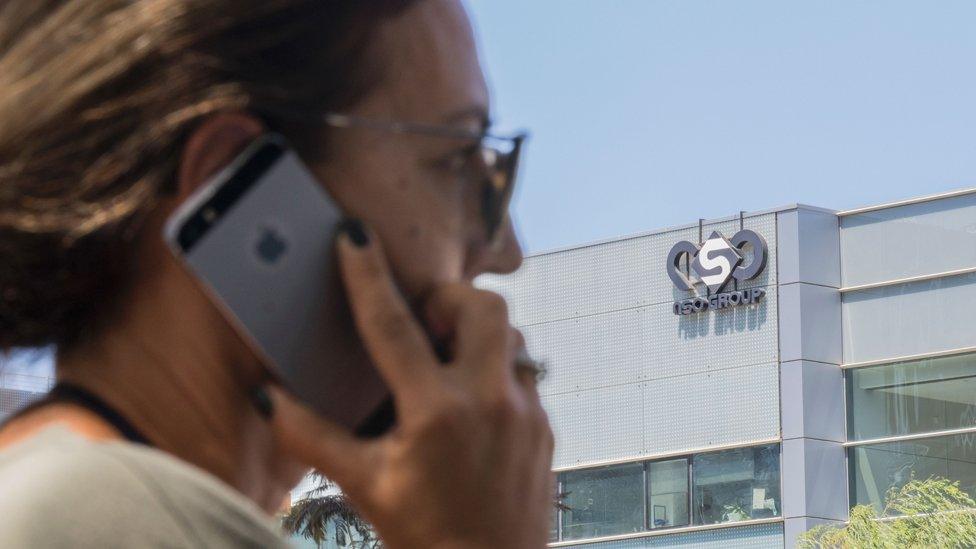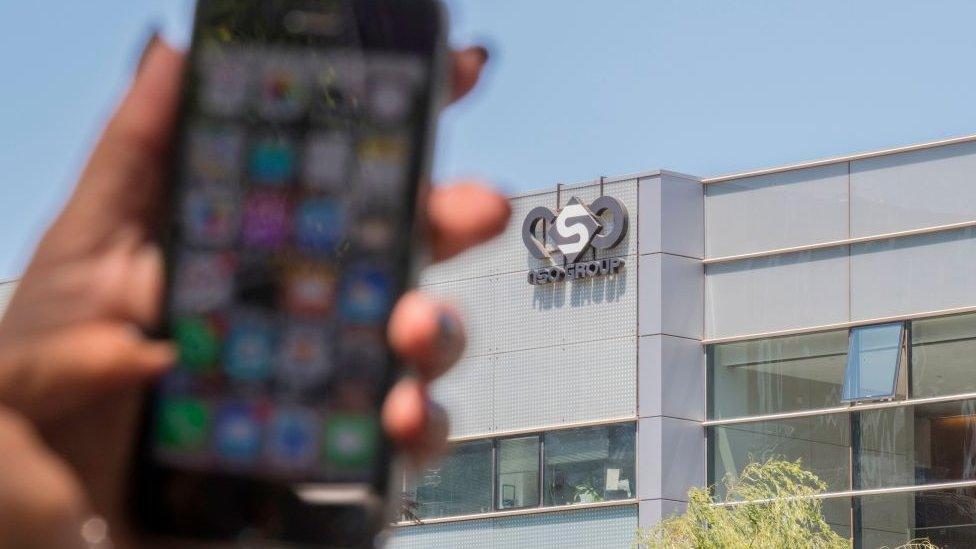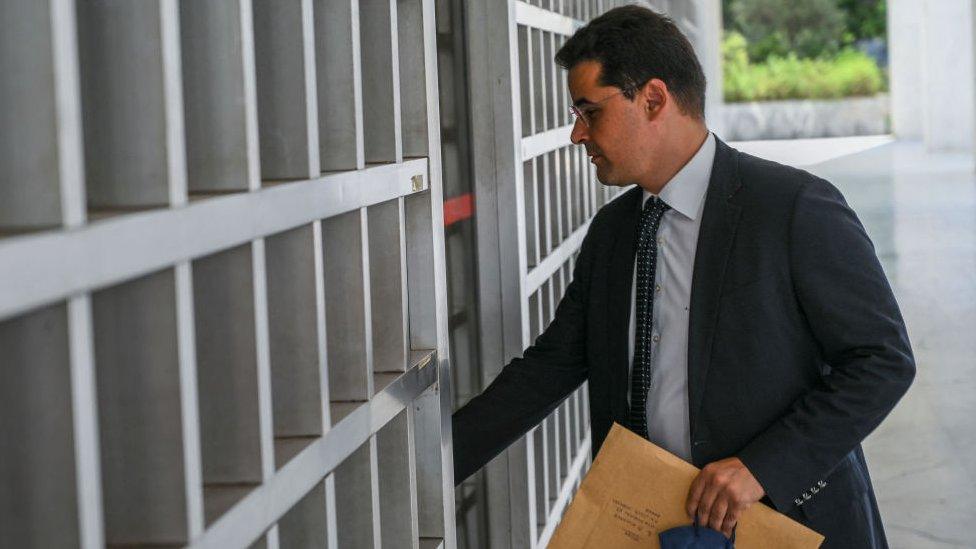Irish-linked spyware used in brazen attacks - report

Intellexa develops digital surveillance software
At a glance
The Irish-linked Intellexa alliance has been accused of letting its spyware "run wild across the world"
It is understood the government is to investigate Irish-registered affliate companies
A report from Amnesty International claims the Predator surveillance tool has been used in "brazen" attacks against journalists, politicians and civilians
The human rights body are calling on multiple governments to conduct investigations and revoke all export licences issued to Intellexa
- Published
The Irish government is set to investigate a digital surveillance alliance that has been accused of letting its smartphone spyware "run wild across the world", BBC News NI understands.
It comes after Intellexa Limited and its parent company Thalestris were named in a damning report by a leading human rights body., external
The firms are registered at a building in north Dublin and are part of a wider Israeli group that sells Predator intelligence software.
According to Amnesty International, Predator is "invasive sypyware" that has been used in "brazen" attempted hacking attacks against politicians and journalists.
It can be used to turn a smartphone into a surveillance tool and has serious “human rights implications", Amnesty said.
The report has called on the Irish government, and others, to investigate and increase regulation on spyware firms.
Spyware: The software that watches you
The alliance, Amnesty said, was “a complex and often changing group of companies”, which advertised itself as “EU-based and regulated”, but had "done nothing to limit who is able to use this spyware and for what purpose".
In July, US officials placed Intellexa on a blacklist, external after determining its surveillance tools posed a threat to national security and foreign policy.
The Dublin-registered Intellexa office was set up in 2019, according to a European Parliament briefing paper.
Amnesty’s report called on Irish and other European governments to "immediately revoke all marketing and export licences issued to the Intellexa alliance”.
The report also called for governments to transparently investigate the alliance's practices and to enforce legislation "that requires all corporate actors to respect human rights".
'Robust' system in place
It is understood the Oireachtas (Irish parliament) justice committee will hold a hearing into the issue in January 2024.
A spokesperson for the Department of Justice said investigations were "a matter for the relevant competent authority" - the Department of Enterprise, Trade and Employment (DETE) - and it would "not be appropriate" to comment on a possible hearing.
DETE said "while the company in question is an Irish registered company", it has not applied for a license for export authorisation.
The department also insisted that the Republic of Ireland has a "robust" export control licensing and compliance system in place.
Neither government department would respond to direct claims or further recommendations found in the report, citing the nature of any such investigation would be deemed sensitive.

It is claimed that Predator software can give unfettered access to a device's microphone, camera and data
What is Predator?
Amnesty has said that once a device was infiltrated with Predator software, the user had unfettered access to its microphone and camera and all its data, while the target was entirely unaware.
This sort of spyware is typically sold to governments for legitimate intelligence operations, however there are concerns it has been abused, as is claimed to have happened in the case of the Greek Watergate scandal.
A new report from the human rights body, in partnership with European Investigative Collaborations (EIC), claims the software has been used in "zero-click attacks" - meaning it can infiltrate a device without the user having clicked on a link.
It said those targeted included President of the European Parliament Roberta Metsola, President of Taiwan Tsai Ing-Wen, French MEP Pierre Karleskind and several United States politicians.

The report claims President of the European Parliament Roberta Metsola was targeted by the spyware
'Undermine human rights'
Amnesty has accused several EU governments of failing to thoroughly regulate Intellexa-linked companies.
"Instead, they are lining their pockets and ignoring the serious human rights implications at stake,” the report added.
"Intellexa alliance's products have been found in at least 25 countries across Europe, Asia, the Middle East and Africa, and have been used to undermine human rights, press freedom, and social movements across the globe.”
Multiple companies linked to Intellexa have been asked by the BBC for comment on the report's findings, but none of them have responded.
Intellexa Ltd is part of a complex international web of companies either fully or partly controlled by the Israeli businessman Tal Dilian.
On his website, Mr Dilian said Intellexa "developed and integrated technologies empowering law enforcement agencies and intelligence agencies to collect and analyse data in the most advanced methods”.
Intellexa has also been criticised in Ireland by European Parliament member Barry Andrews, who asked the Oireachtas Justice Committee in August to investigate the firm.
"I completely agree with the report by Amnesty International and applaud the work that they have done here - and, of course, I agree completely with the report, especially when it says that spyware is fundamentally incompatible with human rights," Mr Andrews told BBC News NI.
Allow X content?
This article contains content provided by X. We ask for your permission before anything is loaded, as they may be using cookies and other technologies. You may want to read X’s cookie policy, external and privacy policy, external before accepting. To view this content choose ‘accept and continue’.
The Fianna Fáil politican added: "I believe that the Irish government are beginning to take this seriously... I look forward to engaging with the justice committee on this as soon as it is on their agenda and I feel it should be much sooner rather than any later."
Amnesty International said it had also reached out to the entities involved, but received no response, while the European Investigative Collaborations network did hear from the main shareholders of the Nexa Group – part of the Intellexa Alliance.
It said the alliance no longer existed and its entities had “scrupulously respected export regulations”.
- Published30 October 2019

- Published19 July 2021

- Published21 July 2021

- Published8 September 2022
